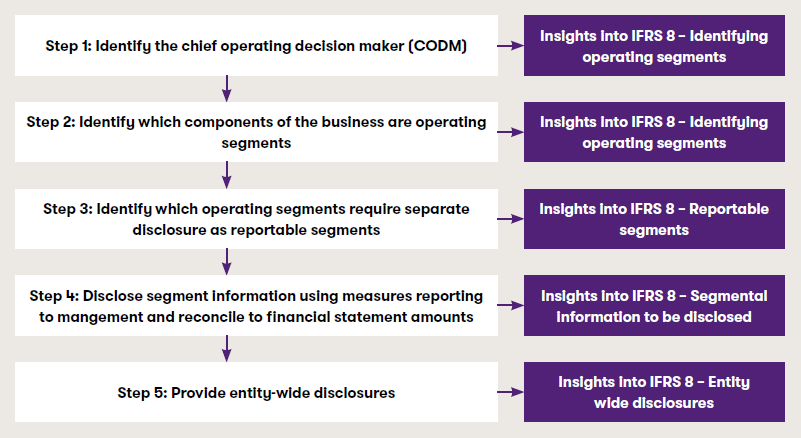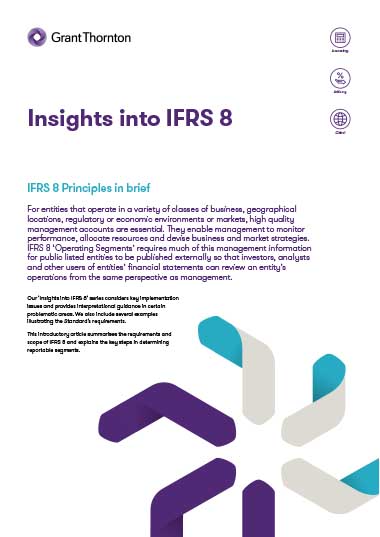-
Sector Focus
We specialise in the investment management industry offering audit, assurance, tax and corporate recovery and liquidation services.
-
Personal Tax Services
There are many tax rules that can affect you personally and therefore which will have an impact on your personal wealth.
-
QI Compliance
Qualified Intermediaries (QI) have to take action now to perform a Certification to the Internal Revenue Service (IRS).
-
Download our tax brochures
The tax teams at Grant Thornton aim to provide the Channel Islands with a premier tax advisory service both to private clients and the business community including the investment management industry.
-
Jersey Tax Return
A secure sign in page to file Jersey Tax Returns through the Grant Thornton tax portal.
-
ESG
ESG can either be seen as a risk management tool or an opportunity, either way it is imperative to your business, whatever your size and whether you are listed or not.
-
Professional Services
Business and accounting support for professional services
-
Finance Industry
We work with a broad range of clients and their financial stakeholders, from entrepreneurs in the early days to fast growing and established businesses to public companies competing in global markets.
-
Local Businesses
Businesses come in many shapes and sizes – from innovative start-ups to long-established local businesses. But however large or small your business, the chances are you face similar challenges.
-
Corporate Insolvency
Our corporate investigation, Guernsey liquidation and recovery teams focus on identifying and resolving issues affecting profitability, protecting enterprise value and facilitating a full recovery where possible.
-
Corporate Simplification
Redundant corporate entities can over complicate group structures and waste thousands of pounds in unnecessary costs each year. 46% of the c.15,500 companies controlled by the FTSE100 are dormant and it is estimated that the average cost of administering dormant companies is between £3,500 and £5,000 per company, per year.
-
Debt Advisory
Our Debt Advisory team provides commercial and financial debt advice to corporate entities and public sector bodies in a range of sectors. Our engagements include advice on stand-alone transactions and solutions or as part of an integrated business plan, in both the project and corporate arenas.
-
Exit Strategy Services
We offer a tailored methodology designed to enable a company to be reviewed in a group context to assess ways to maximise its value.
-
Financial Restructuring
For companies challenged by under-performance we work with management teams, shareholders, lenders and other stakeholders to implement financial restructuring solutions creating a stable platform for business turnaround.
-
Strategic performance reviews
Strategic performance reviews analyse the key drivers of performance improvement. Our specialists utilise a framework to evaluate financial and operational options and to identify solutions for businesses and their stakeholders.
Our ‘Insights into IFRS 8’ series considers key implementation issues and provides interpretational guidance in certain problematic areas. We also include several examples illustrating the Standard’s requirements. This introductory article summarises the requirements and scope of IFRS 8 and explains the key steps in determining reportable segments.
For entities that operate in a variety of classes of business, geographical locations, regulatory or economic environments or markets, high quality management accounts are essential. They enable management to monitor performance, allocate resources and devise business and market strategies. IFRS 8 ‘Operating Segments’ requires much of this management information for public listed entities to be published externally so that investors, analysts and other users of entities’ financial statements can review an entity’s operations from the same perspective as management.
IFRS 8 objectives
The objective of IFRS 8 is set out in a core principle. This principle requires an entity to disclose information to enable users of its financial statements to evaluate the nature and financial effects of the business activities in which it engages and the economic environments in which it operates.
Operating segments are determined based on the structure of the organisation and how information is reported to management. IFRS 8 does not prescribe the measurement policies for the information to be disclosed. Instead the amounts disclosed are mainly based on the information presented to management. This is generally known as ‘the management approach’ or ‘through the eyes of management’.
The management approach
The IASB decided to implement a management approach in the Standard because:
- it gives consistency between what is reported to users and what is reported internally to management, enabling users to see how the entity is structured to reflect the risks and opportunities that management believe are important
- the ability to see segment information ‘through the eyes of management’ enhances users’ ability to predict actions or reactions of management that can significantly affect the entity’s prospects for future cash flows
- segment information is more consistent with information reported elsewhere in the annual report, for example in a management commentary, and
- the incremental cost of producing segment information is lower because it is based on the information already presented to
management.
Scope of IFRS 8
The disclosure requirements of IFRS 8 are limited to entities within its scope. However, other entities may, in certain circumstances, need to identify operating segments in accordance with IFRS 8 in order to comply with the requirements of other standards (see more details below).
Identifying entities within the scope of IFRS 8
IFRS 8 applies to entities that prepare financial statements, and:
- whose equity or debt securities are traded in a public market, or
- that file, or are in the process of filing, financial statements with a securities commission or other regulatory organisation for the purposes of issuing any class of instruments in a public market.
This applies to both consolidated financial statements of a group with a parent and the separate or individual financial statements of an entity.
IFRS 8 clarifies what is meant by a ‘public’ market and makes it clear this includes ‘over-the-counter’ markets. It also states a parent entity that does not have publicly traded securities is not within the scope of IFRS 8, even if it has a subsidiary or investment in another entity that has issued listed securities.
If a financial report in the scope of IFRS 8 contains both consolidated financial statements as well as the parent’s separate financial statements, segment information is required only in the consolidated financial statements.
Some entities outside the mandatory scope of IFRS 8 may decide to disclose segment information regardless. If this happens but the entity chooses to disclose information about segments that does not comply fully with IFRS 8, it must not describe the information as segment information. An alternative heading should be given to the disclosures.
Implications for all entities, including those outside the scope of IFRS 8
Although entities outside the scope of IFRS 8 are not subject to its disclosure requirements, they must still use the guidance to identify operating segments when identifying cash generating units (CGUs) or groups of CGUs to which goodwill or mineral resource exploration and evaluation assets are allocated.
A number of other standards refer to segment information or the identification of segments in accordance with IFRS 8. In some circumstances, additional disclosures relating to segments are only required for entities within the scope of IFRS 8. However, in some situations, the requirements of other standards relating to segments apply to all entities, including those outside the scope of IFRS 8.
In a later article we will discuss the interaction of other standards with IFRS 8 and we will highlight additional requirements of other IFRS for entities that fall within the scope of IFRS 8.
Steps to determine reportable segments – summary
The process for determining operating segments and identifying which of those are reportable separately is summarised in the flow chart below.

How to address each of these five steps will be explained in subsequent articles in the 'Insights to IFRS 8' series.







